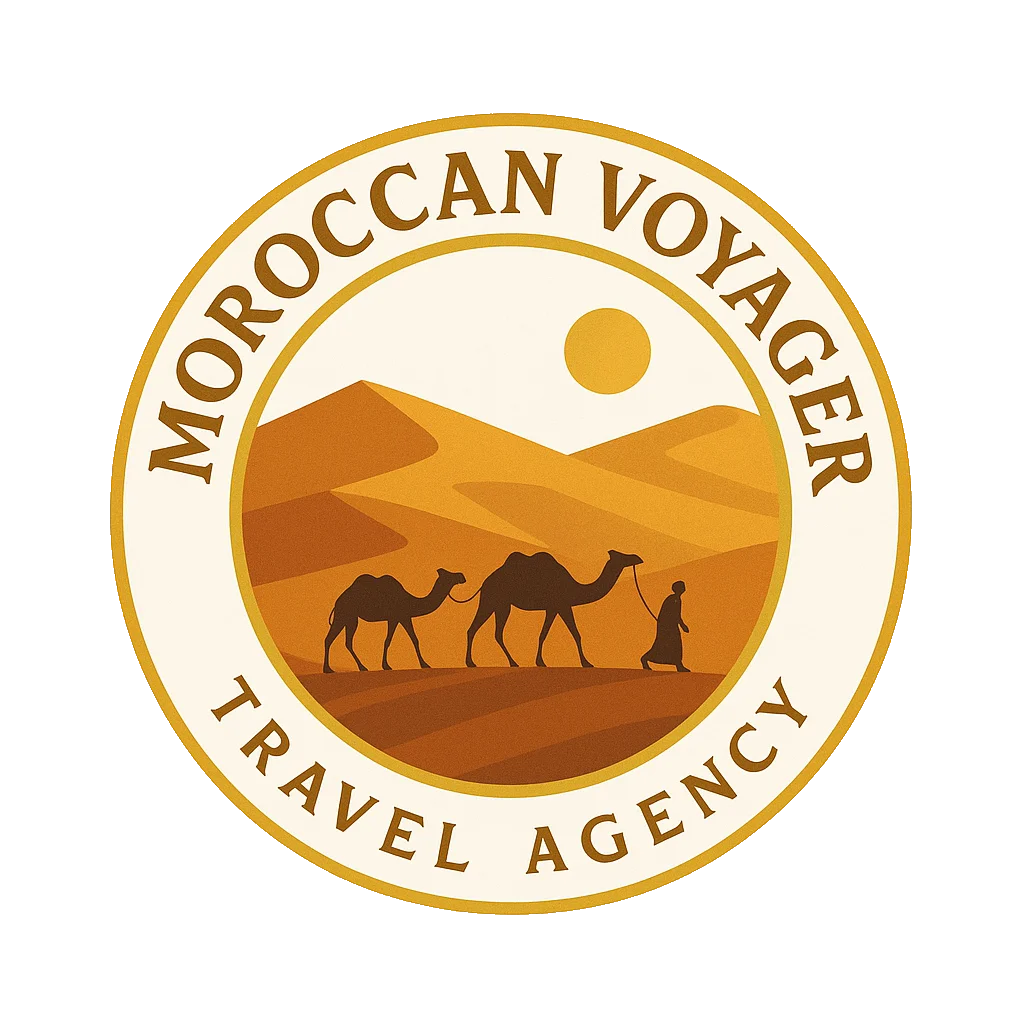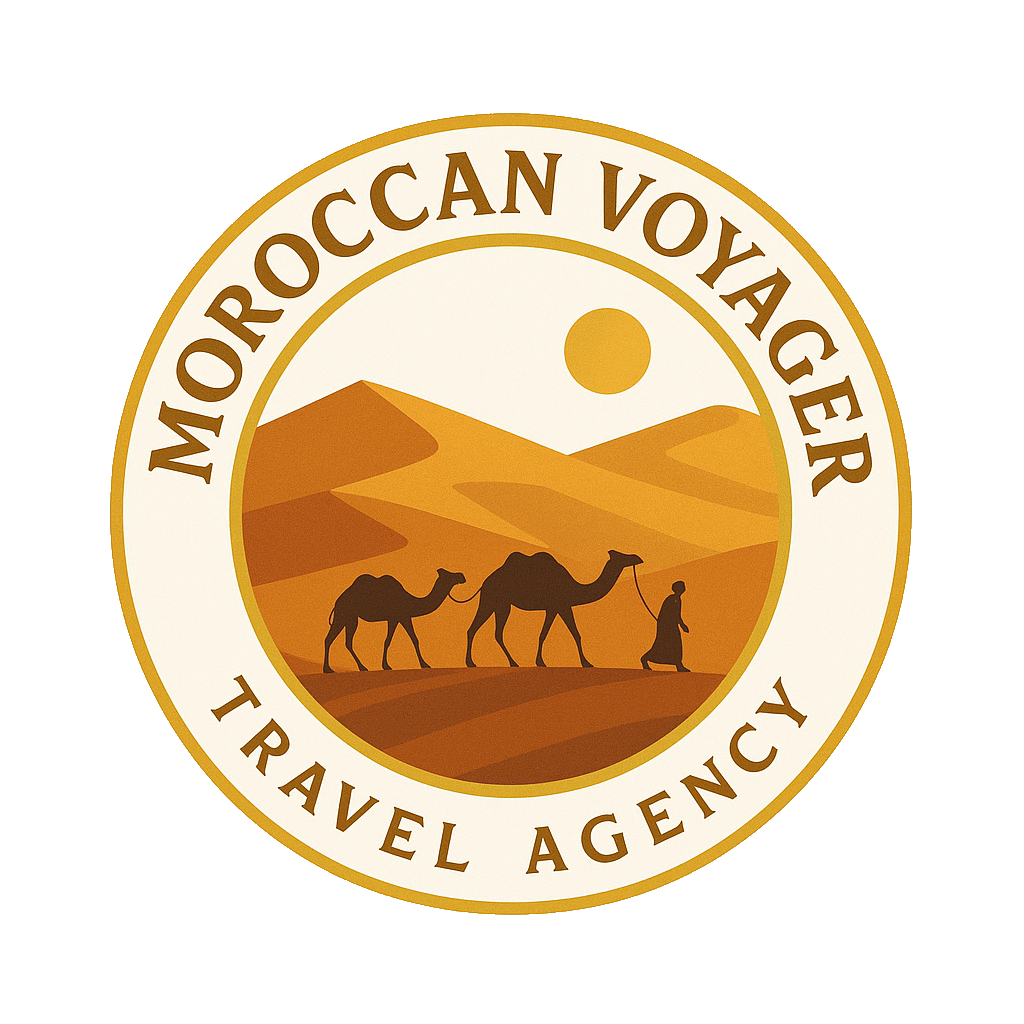Visiting Morocco During Ramadan: A Tourist’s Complete Guide
Introduction
Discover why thousands of tourists choose to visit Morocco during Ramadan. Are you wondering if it’s a good time to travel? Will everything be closed? Will food be available? We will dispel these myths and show you why Ramadan can actually be an incredibly enriching period to explore Morocco. This guide will provide you with everything you need to know for an unforgettable Moroccan adventure during this sacred month, offering a glimpse into unique experiences only available during this special time.
Is Morocco Worth Visiting During Ramadan? (Spoiler: Yes!)
Debunking Common Tourist Myths
Many tourists hesitate to visit Morocco during Ramadan, fearing that the country will be “closed” or “inhospitable.” This is a common misconception. Although the daily rhythm changes, Morocco remains a welcoming and vibrant destination. The myth that “everything will be closed” is largely exaggerated. While some small local businesses may adjust their hours, hotels, large restaurants in tourist areas, and main attractions remain open for visitors. Activities are not limited; on the contrary, evenings come alive in a unique way, offering adventure opportunities not found outside of Ramadan. The idea that “it’s not tourist-friendly” is also false; Moroccans are renowned for their hospitality, and this is even more true during the holy month, where generosity and welcome are central values. Finally, the fear of not finding food is unfounded; hotels continue to serve meals to tourists throughout the day, and many restaurants adapt to meet the needs of non-fasting visitors.
Why Ramadan is Actually Perfect for Tourists
Visiting Morocco during Ramadan offers a unique and often more authentic perspective of the country. One of the major advantages is the decrease in crowds at major tourist sites. This means more peaceful visits, photos without the rush, and a more intimate experience of Moroccan wonders. In addition, hotel rates can be more advantageous and availability increased, making travel more accessible. Ramadan is a period of unique cultural celebration, with experiences you cannot have at other times of the year. Local hospitality is at its peak, with locals being particularly warm and eager to share their culture. The nighttime atmosphere is simply unforgettable, with cities coming alive after sunset for Iftar (breaking the fast) and the celebrations that follow. This is an opportunity to discover an authentic Morocco, beyond the typical tourist experience, by immersing yourself in the traditions and daily life of Moroccans during this sacred month.
What Ramadan Means for Your Morocco Trip
Understanding the Basics (Tourist-Friendly Version)
Ramadan is the ninth month of the Islamic calendar, observed by Muslims worldwide as a month of fasting, prayer, reflection, and community. For tourists, it is essential to understand that this involves fasting from dawn to sunset, during which Muslims abstain from eating, drinking, and smoking. The dates of Ramadan change annually as they are based on the lunar calendar, so it is crucial to check the exact dates for your travel year. For 2026, Ramadan is expected to begin on the evening of Tuesday, February 17th, and conclude on the evening of Wednesday, March 18th. For 2027, Ramadan is expected to begin on the evening of Sunday, February 7th, and conclude on the evening of Monday, March 8th. Always verify dates closer to your travel time as the exact start depends on moon sighting. It is a period of community celebration and intense spirituality, where families and friends gather for Iftar and prayers. Locals are often even more welcoming to visitors during this period, eager to share the beauty of their traditions. You will notice a transformation from quiet days to vibrant nights, which offers a unique cultural experience.
Daily Schedule Impact on Tourists
The daily rhythm in Morocco changes significantly during Ramadan, but this can actually enhance your travel experience. From morning to afternoon, you will find tourist sites and streets more peaceful, with fewer crowds, which is ideal for visits and photography. In the late afternoon, activity slows down as locals prepare to break their fast; this is a perfect time to rest at your hotel or enjoy a hammam. Sunset marks the magic hour when cities come alive for Iftar. From evening to late night, you will discover a festive atmosphere with night markets, lively restaurants, and unique cultural experiences. This different rhythm can allow you to see Morocco in a new light, immersing yourself in local life in a way that travel outside of Ramadan does not allow.
Where and When You Can Eat (The Tourist’s Main Concern!)
Don’t Worry – You Won’t Go Hungry
This is one of the biggest concerns for tourists visiting Morocco during Ramadan, and the good news is that you absolutely won’t go hungry! Hotels are well aware of the needs of their non-fasting guests and continue to serve meals throughout the day in their restaurants and via room service. Many restaurants in tourist areas also remain open, especially those catering to an international clientele. It is helpful to distinguish between “tourist-friendly” establishments and small local cafes or restaurants that might close during the day. Areas like Gueliz in Marrakech or Ville Nouvelle in Fes and Casablanca are more likely to have dining options open during the day. To identify tourist-friendly restaurants, look for those that clearly display their opening hours or ask your hotel for recommendations. You will be surprised at how much the tourism industry adapts to ensure the comfort of its visitors.
Amazing Evening Dining Experiences
In the evening, after sunset, the Moroccan culinary scene comes alive in a spectacular way. Iftar buffets at hotels are a cultural experience not to be missed. They offer an incredible variety of traditional Moroccan dishes, from rich soups to sweet pastries, fresh dates, and juices. It’s a true feast for the senses and a great opportunity to taste everything. In the streets, a street food explosion occurs after sunset, especially in the medinas and main squares. You absolutely must try Harira soup, Chebakia pastries, and of course, fresh dates. Many restaurants embrace the spirit of Ramadan by offering special Iftar menus and festive atmospheres. It’s also a great time to participate in food tours or cooking classes that can be adapted to include the preparation of traditional Iftar dishes. The energy and joy that accompany the breaking of the fast are contagious, and you will find yourself savoring every bite in an atmosphere of celebration.
Your Ramadan Morocco Itinerary Strategy
Perfect Daytime Activities (9 AM – 5 PM)
During the day, the calmer pace of Ramadan offers unique opportunities to explore Morocco without the usual crowds. This is the ideal time to visit museums and historical sites, where you can enjoy exhibitions and architecture in a more serene atmosphere. Guided tours of palaces and monuments are also more pleasant, allowing you to fully appreciate the details without being rushed. Photography sessions in empty squares and alleys are particularly rewarding, offering unique shots of Moroccan life. For relaxation, hammams and spa experiences are an excellent option, offering a peaceful escape. If you enjoy shopping, air-conditioned malls remain open and are a good alternative to the quieter souks during the day. Finally, relaxing by your hotel pool or in its lush gardens is a perfect way to recharge before the evening’s excitement.
Must-Do Evening Experiences (6 PM – Midnight)
After sunset, Morocco transforms and offers a multitude of memorable experiences. Enjoy the sunset from rooftops and terraces for breathtaking views of the city as it lights up. Evening medina walks are magical, as souks and shops reopen and come alive with a festive energy. You will find traditional music and entertainment venues offering unique performances. Rooftop cafes offer the best views for sipping mint tea and admiring the city lights. This is also a fantastic time for night photography, with illuminated historic sites and lively street scenes offering memorable shots. Late-night shopping with locals in a festive mood is an authentic experience not to be missed.
Tourist Etiquette Made Simple
Easy Rules to Follow
To fully enjoy your trip during Ramadan and show your respect for local culture, here are some simple rules to follow. First, avoid eating, drinking, or smoking in public during daylight hours. Of course, you can do so within your hotel, but in public spaces, it is best to refrain out of respect for those who are fasting. Dress slightly more conservatively than usual. Clothes that cover the shoulders and knees are a good choice. Keep your voice moderate in public spaces, as Ramadan is also a time of reflection and peace. Show interest and respect when locals share their culture with you; an open and curious attitude will be greatly appreciated. Finally, learning a few simple Arabic phrases like “Ramadan Mubarak” (Happy Ramadan) or “Shukran” (Thank you) will bring smiles and show your goodwill.
What Tourists Often Worry About (But Shouldn’t!)
Many tourist concerns are often unfounded. For example, “Can I drink water in public?” It is best to do so discreetly, but no one will blame you if you need to hydrate, especially if it’s hot. “Will people be offended if I’m not fasting?” Absolutely not. Moroccans understand that non-Muslims do not fast and do not expect you to. “Is it okay to take photos?” Yes, but as always, it is polite to ask permission before taking pictures of people. “Should I tip differently?” Tips are always appreciated, and a little extra generosity can be a nice way to show gratitude for service during this period. “Can I wear shorts/tank tops?” While it is preferable to dress modestly, in very touristy areas and hotels, more casual attire is generally acceptable, but it’s good to have a shawl or shirt on hand to cover up if necessary.
Pre-Trip Planning for Ramadan Tourism
Essential Research Before You Go
Good preparation is key to a successful trip, especially during Ramadan. The first step is to check the exact dates of Ramadan for your travel year, as they vary according to the lunar calendar. This will allow you to plan accordingly. It is also crucial to check your hotel’s dining policies for tourists; make sure they offer daytime meal services. Downloading useful apps for prayer times and the Ramadan schedule can help you immerse yourself in the local rhythm and plan your days. Research the specific Ramadan customs of your destinations; some cities may have slightly different practices. Finally, if you plan organized tours, book with companies experienced in Ramadan travel, as they will be better prepared to handle the necessary adjustments.
Smart Packing for Ramadan Morocco
Packing thoughtfully can greatly enhance your comfort and respect for local customs. Bring clothing that covers your shoulders and knees, such as light pants, long skirts, and long-sleeved shirts. This is particularly important when walking around cities or visiting religious sites. Comfortable walking shoes are essential, especially for evening explorations of medinas and souks. A portable water bottle is useful for staying hydrated at the hotel, even if you don’t drink in public. A power bank for your phone will be valuable for longer evening adventures. If you plan to visit mosques, bring respectful attire (headscarf for women, long clothing for everyone).
Booking Considerations
When booking your trip, a few points should be considered to optimize your experience during Ramadan. Choose hotels that are accustomed to hosting international guests and offer adapted services (daytime meals, etc.). Book tours that have been adjusted for the Ramadan schedule, as some timings may be modified. Consider longer stays to allow yourself to adapt to the Ramadan rhythm and fully enjoy both daytime and nighttime experiences. It is advisable to make restaurant reservations for popular Iftar spots, as they can be very busy. Finally, don’t forget travel insurance considerations to cover any unforeseen circumstances.
Once-in-a-Lifetime Ramadan Experiences
Join the Iftar Celebration
Iftar, the breaking of the fast at sunset, is a magical moment and an unforgettable experience for tourists. It is an opportunity to share a festive meal and feel the incredible community spirit. Hotel Iftar buffets are often lavish, offering an incredible variety of traditional Moroccan dishes, from rich soups like Harira, to sweet pastries like Chebakia, as well as fresh dates and juices. It’s a true culinary immersion. In the streets, a street food explosion occurs at sunset, with stalls overflowing with delights. If you are lucky enough to be invited to a local family’s Iftar, it’s a golden opportunity to experience Moroccan hospitality at its best. Don’t forget to bring a small gift as a token of gratitude. The energy and joy emanating from these gatherings are contagious, and you will witness a deep and warm community spirit.
Evening Adventures You Can’t Get Other Times
Ramadan transforms Moroccan nights into a vibrant and unique spectacle. Medinas and souks transform into lively night markets, where merchants reopen their shops and the streets are filled with life, music, and laughter. This is the ideal time to stroll, shop, and soak up the atmosphere. You will find traditional music performances and cultural shows that highlight Morocco’s rich artistic heritage. Rooftop cafes offer the best views for sipping mint tea and admiring the city lights. This is also a fantastic time for night photography, with illuminated historic sites and lively street scenes offering memorable shots. Late-night shopping with locals, in a festive mood, is an authentic experience not to be missed.
Cultural Immersion Opportunities
Ramadan offers unparalleled cultural immersion. It is an opportunity to learn more about Islam and Moroccan culture. Mosque visits (for non-Muslims, this is generally possible outside of prayer times and with appropriate attire) will allow you to appreciate Islamic architecture and understand its importance. You can also discover Moroccan Islamic art and calligraphy through exhibitions or workshops. Participating in evening community gatherings will give you an insight into Moroccan social life. Understanding the spiritual significance of Ramadan through guided experiences or conversations with locals can enrich your trip. Finally, Ramadan is a privileged time to build connections with locals, who are often eager to share their culture and traditions with curious and respectful visitors.
Practical Tourist Logistics
Accommodation During Ramadan
The choice of your accommodation is crucial for a comfortable experience during Ramadan. The best types of hotels for tourists during Ramadan are those that cater to an international clientele and are accustomed to providing daytime services. When booking, do not hesitate to ask specific questions about meal services (breakfast, lunch), pool hours, and other facilities. The distinction between a Riad and a hotel is also important: Riads offer a more intimate and traditional experience, but may have more limited daytime dining services than larger hotels. Check the availability of room service and minibar, which can be valuable assets. Finally, hotel concierge services can be a great help in navigating Ramadan activities, getting information on schedules, and making reservations.
Getting Around Morocco
Transportation schedules may be modified during Ramadan, so it is important to inquire in advance. Buses and trains may have reduced frequencies or adapted schedules. The best times to travel between cities are generally in the morning or late afternoon, before breaking the fast. The availability of taxis and booking apps may vary; it is advisable to book in advance if you have important journeys. Tour guide services are generally available and can be very useful for understanding changes in pace and local customs. If you plan to rent a car, be aware that driving may be different during fasting hours, with particular attention to the hours leading up to Iftar, when roads may be busier.
Money, Banking, and Services
ATMs and banks may have modified hours during Ramadan, so it is wise to plan your cash withdrawals. The tipping culture remains the same, but a little extra generosity may be appreciated given the additional efforts of staff. Be aware of changes in the service industry; some small businesses may close earlier or open later. Always have emergency contacts handy. Finally, good communication with your local guides and tour operators is essential to stay informed of adjustments and opportunities during your stay.
City-by-City Tourist Guide
Marrakech During Ramadan
Marrakech, the ochre city, offers a unique experience during Ramadan. Daytime activities such as visiting palaces (Bahia, El Badi), museums (Yves Saint Laurent, Dar Si Said), and gardens (Majorelle, Menara) are particularly pleasant with fewer crowds, allowing for a more serene exploration. The evening magic unfolds in Jemaa el-Fnaa square, which transforms after Iftar into a huge open-air theater with storytellers, musicians, snake charmers, and a multitude of food stalls. It’s an unforgettable spectacle. For accommodation, large hotels and well-established Riads are the best choices, as they are accustomed to managing the needs of tourists during Ramadan. Many restaurants offer special Iftar menus, and it is advisable to book. Shopping in the souks is livelier in the evening, but modern shops in areas like Gueliz remain open during the day.
Fes During Ramadan
Fes, the spiritual capital of Morocco, offers a deep immersion in tradition during Ramadan. Exploring the medina (Fes el-Bali) during the quiet daytime hours is a meditative experience, allowing you to appreciate the architecture and craftsmanship without the usual frenzy. Traditional craft workshops and cultural sites like tanneries or madrasas are accessible. In the evening, the city comes alive with unique culinary and cultural experiences, often centered around Iftar meals and family gatherings. The best areas for tourist services are around hotels and Riads that cater to visitors. Transportation within the city may be slightly modified, but taxis are generally available.
Casablanca During Ramadan
Casablanca, the modern metropolis, offers advantages for tourists during Ramadan thanks to its more contemporary infrastructure. Visiting the Hassan II Mosque is a must, and its immensity is even more impressive in the relative calm of the day. Dining options in business districts and large hotels are numerous and adapted to non-fasters. Evening entertainment and cultural activities are varied, ranging from dinners in chic restaurants to strolls along the Corniche. Airport and travel connections are generally less affected than in more traditional cities.
Smaller Cities and Rural Areas
Visiting smaller cities and rural areas during Ramadan offers a more authentic and traditional Ramadan experience. You will be at the heart of local customs and community celebrations. However, this may present challenges in terms of limited tourist services; it is therefore essential to prepare accordingly. Community interactions are deeper, and you will have the opportunity to experience true cultural immersion. Expect limited tourist infrastructure, with fewer dining options open during the day. Transportation and logistics may require more planning, as services may be less frequent. It is an experience for travelers seeking a deeper authenticity and connection with Moroccan culture.
Tourist Mistakes to Avoid
Don’t Be “That Tourist”
For a respectful and enjoyable experience, it is important to avoid certain behaviors that could be perceived as disrespectful during Ramadan. Eating or drinking visibly in public during fasting hours is one of the most common mistakes. Even if you are not Muslim, discretion is key. Complaining about modified schedules or services that operate at a slower pace will only add to your frustration and will not change anything. Ignoring dress code recommendations can also be poorly perceived; dressing modestly is a sign of respect. Being impatient with slower daytime service is another mistake; the pace is different, and patience is a virtue. Finally, missing out on evening experiences due to unfamiliarity with the new rhythm would be a shame, as that is where the magic happens.
Smart Tourist Behaviors
Adopting a flexible and respectful approach will ensure an enriching experience. Embrace the different rhythm of Ramadan instead. This will allow you to discover a unique facet of Morocco. Show genuine interest in local customs; Moroccans appreciate curiosity and respect. Be flexible with your schedule; things may take longer, and that’s normal. Tip appropriately for the extra hospitality you might receive. Finally, learn a few basic Arabic phrases of respect; a simple “Salam Alaikum” (Peace be upon you) or “Ramadan Karim” (Generous Ramadan) can make all the difference.
How to Handle Unexpected Situations
Despite the best planning, unexpected situations can arise. If you accidentally eat/drink in public, don’t panic. Discreetly apologize and move on. If you are invited to someone’s home for Iftar, consider it a great honor. Bring a small gift (pastries, dates) and be prepared to share a memorable meal. If you are asked about your religion or customs, answer honestly and respectfully; it is an opportunity for cultural exchange. Managing different comfort levels with cultural differences is a matter of perspective; be open and curious. In case of an emergency, always have the contacts of local emergency services and your embassy handy.
Making Your Ramadan Morocco Trip Unforgettable
Embracing the Experience
To make your trip to Morocco during Ramadan truly unforgettable, it is essential to adjust your expectations and embrace the unique rhythm of this period. Understand that this timing offers unique cultural access that you will not find at other times of the year. It is an opportunity to connect with locals through shared respect and curiosity. Document your journey respectfully, capturing moments without disturbing local life. Enjoy the peaceful daytime atmosphere for serene explorations and personal reflections.
Creating Lasting Memories
Ramadan in Morocco is rich in opportunities to create lasting memories. The best photo opportunities often arise in the evening, when cities light up and markets come alive. For souvenirs, look for Ramadan-specific items, such as decorative lanterns or special pastries. Keep a journal or blog about your cultural experiences to immortalize your discoveries and reflections. Learn recipes for traditional Ramadan foods to bring a piece of Morocco home with you. Finally, build connections with the locals you meet; these interactions are often the most enriching.
Why You’ll Want to Return
Your trip during Ramadan will change your perspective on Morocco, showing you a deeper and more spiritual side of the country. The warmth and hospitality you experience will leave a lasting impression. You will better understand the seasonal variations in Moroccan culture and the importance of Ramadan. This could even encourage you to plan future visits at different times of the year to discover other aspects of Morocco. Finally, share your experience with other potential travelers, inspiring others to discover the magic of Morocco during Ramadan.
Ready to Book Your Ramadan Morocco Adventure?
In summary, Ramadan is actually the ideal time to visit Morocco, offering a unique and deeply enriching travel experience. The unique experiences available during this period, from the festive atmosphere of the evenings to authentic cultural interactions, transform a simple trip into a memorable adventure. Rest assured that Morocco is a welcoming destination for tourists, with support available to help you navigate local customs. We strongly encourage you to seize this cultural opportunity and discover the magic of Morocco during this sacred month. For a hassle-free experience, we offer specialized Ramadan travel packages, designed to maximize your cultural immersion while ensuring your comfort.
Why Choose Us for Your Ramadan Morocco Tour?
Our team has in-depth expertise in Ramadan tourism and great cultural sensitivity. Our specialized guides are trained to help tourists navigate Ramadan customs, offering practical advice and valuable information. We have established partnerships with hotels and restaurants that warmly welcome tourists during this period, ensuring quality services. We offer customized itineraries that maximize your Ramadan experience, taking into account unique schedules and opportunities. In addition, we offer 24/7 support and cultural guidance throughout your trip. Feel free to consult the testimonials from our previous Ramadan travelers to get an idea of the exceptional experience we offer.
Quick Reference Sections:
Morocco During Ramadan at a Glance: Tourist Edition
- Days: Calm, suitable for visiting sites with fewer crowds.
- Evenings: Vibrant, festive, with lively markets and Iftar celebrations.
- Food: Available in hotels and many tourist restaurants during the day; explosion of flavors and festivities in the evening.
- Dress Code: Modest, covering shoulders and knees in public.
- Behavior: Avoid eating, drinking, or smoking in public during the day out of respect.
- Advantages: Fewer crowds, potentially lower prices, unique cultural immersion.
Essential Phrases for Tourists During Ramadan
- Ramadan Mubarak / Ramadan Karim: Happy Ramadan (wish for a good Ramadan).
- Salam Alaikum: Peace be upon you (common greeting).
- Shukran: Thank you.
- Marhaba: You’re welcome.
- Bismillah: In the name of God (often said before eating).
- Alhamdulillah: Praise be to God (often said after eating).
Emergency Contacts and Tourist Resources
- Police: 19 (cities), 177 (rural areas)
- Firefighters / Ambulance: 15
- Your embassy / consulate: Numbers to check before departure.
- Hotel: Reception and concierge number.
- Tour operator: Emergency number (always have this handy!).
Daily Schedule Template for Ramadan Tourists
- Morning (before 9 AM): Breakfast at the hotel, preparing for the day.
- Daytime (9 AM – 5 PM): Visiting museums, historical sites, shopping in malls, relaxing at the hotel.
- Late Afternoon (5 PM – sunset): Rest, preparing for the evening, observing the city preparing for Iftar.
- Sunset: Observing Iftar, participating in an Iftar buffet.
- Evening (after Iftar): Exploring night markets, dinner, cultural shows, medina walks.
- Night: Returning to the hotel, rest.




